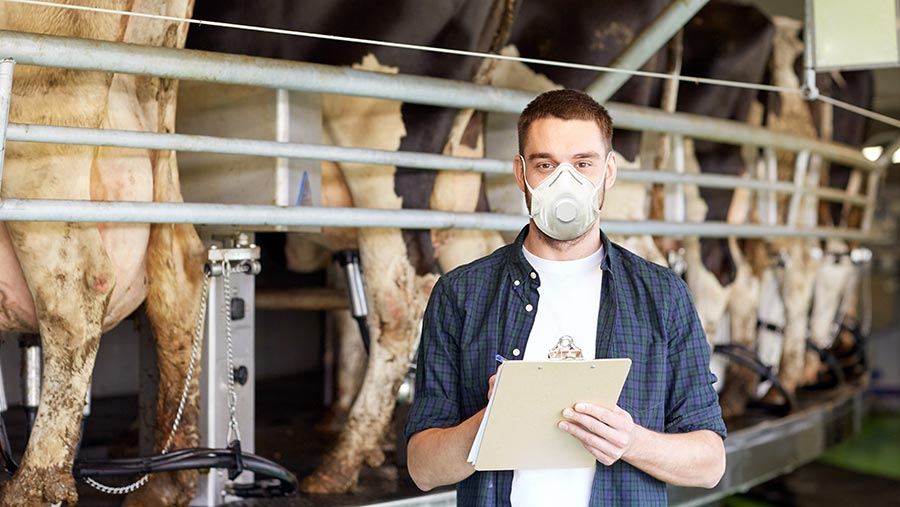HMRC will claw back ‘wrongly claimed’ Covid-19 grants
 © Syda Productions/Adobe Stock
© Syda Productions/Adobe Stock Farmers who put in a claim for previous rounds of the Self-Employed Income Support Scheme (SEISS) are being warned they may find themselves under scrutiny from HMRC.
Accountant Saffery Champness has said anyone who wrongly claimed through SEISS or the Coronavirus Job Retention Scheme (CJRS) should come clean or they could face a difficult HMRC investigation.
Martyn Dobinson, a partner with the firm, said HMRC was allocated £100m of funding in the last Budget for investigations and the recouping of a suspected £3.5bn in fraudulent Covid-19 support scheme claims.
“We are aware of several cases where queries have been raised by HMRC, across various sectors including farming, and we advise any claimant who believes that they may have wrongly claimed to raise this with HMRC at the earliest opportunity, either directly or through their adviser.
“While HMRC will clearly be looking to focus its efforts on the most serious of cases, and blatant abuse of the system, smaller businesses and individuals could easily be caught up in this claim recovery programme. They could be subjected to an intrusive forensic investigation, which any taxpayer would be keen to avoid.”
The current claims window for SEISS, covering the three months from February to April 2021, is open until 1 June 2021.
See also: Countryside Stewardship 2021 – what farmers need to know
In due course there will be a fifth grant made available to those who qualify, covering the period from May to September 2021.
According to the Association of Taxation Technicians (ATT), people were eligible for the first and second rounds of the SEISS if they could show their trade had been “adversely affected” by Covid-19 during the relevant time periods.
There was no specific monetary threshold, and no requirement for income or profits to have fallen by a certain amount.
Instead, HMRC gave the following examples of how a business could be adversely affected by Covid-19:
- People unable to work because they were shielding, self-isolating, on sick leave because of coronavirus, or had caring responsibilities because of coronavirus.
- People who had been forced to scale down or temporarily stop trading, or incurred additional costs, because the supply chain had been interrupted; there were fewer or no customers or clients; staff were unable to come to work; one or more of contracts were cancelled; or
they had to buy protective equipment so they could trade while following social distancing rules.
The rules were tightened for rounds three and four of the SEISS to state that trade must have suffered from “reduced activity, capacity or demand” and that applicants must “reasonably believe” they would suffer a significant reduction in trading profits for the basis period.
Again, ATT says that HMRC has not published any detailed guidance setting out its interpretation of “reasonable belief” or “significant reduction”.
Instead, it indicates that claimants need to make an honest assessment, as this decision cannot be made HMRC because it requires individual and wider business circumstances to be considered.
However, HMRC’s guidelines for “reduced activity, capacity or demand” are:
- Having fewer customers or clients than normally expected, resulting in reduced activity due to social distancing or government restrictions
- Having one or more contracts that have been cancelled and not replaced
- Carrying out less work due to supply chain disruptions.
It states that people must not claim if the only impact on their business has been increased costs.
Applicants can also claim if temporarily unable to carry out their business activities due to coronavirus, because, for example:
- The business has had to close due to government restrictions
- They have been instructed to shield or self-isolate in line with NHS guidelines and are unable to work from home
- They have tested positive for coronavirus and are unable to work
- They cannot work because of caring responsibilities, for example as a result of school or childcare closures.
The CJRS will run to the end September 2021 for employers, and Saffery Champness has also warned businesses to review the status of their claims to check they are eligible.
Whistleblowers have been coming forward to expose instances where furlough rules have been broken, for example if staff were asked to work by their employers while they were claiming under the scheme.
